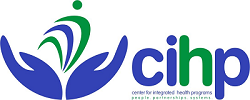
STRENGHTENING SKILLS AND COMPETENCIES OF CARE PROVIDERS FOR ENHANCED SERVICE DELIVERY
FUNDER
Centers for Disease Control and Prevention (CDC)
PARTNERS
Federal Ministry of Health (FMOH), State Governments, Medical and Dental Council of Nigeria (MDCN)
LOCATION
Kaduna, Gombe, Kogi, Benue, FCT, Cross River, and Nasarawa states
STATUS
Completed
DURATION
2013 – 2016
In providing care for women, children, and other vulnerable groups, service delivery quality is paramount. But in a weak health system, who delivers it?
What capacity does the Nigerian health force hold and has the government made any significant impact by itself?
CIHP through the CDC grant, SCOPE, ensured that the enduring inadequacies within the Human Resources for Health (HRH) in Nigeria, particularly in the area of HIV care, treatment and prevention was positively influenced.
The SCOPE project focused on increasing the availability of health workers and improving their capabilities to meet the priority health needs of underserved population.
This sustainable and scalable HRH intervention went on to secure the future of health workers within existing national guidelines.
Partnering with health institutions and augmenting government strengths
CIHP partnered with 17 pre-service undergraduate and 2 post-graduate health-training institutions, nursing, midwifery and colleges of health technology spread across 7 states.
With three key objectives, we strengthened the pre-service journeys of both undergraduate and postgraduate students of health institutions with great capacity for understanding and providing the public with comprehensive, family-centered, quality focused HIV prevention, treatment, and care and support services.
According the SCOPE project team, “Building the capacity of the next generation of health professionals, of today’s health apprentices before they go into full practice to serve the health needs of the public, especially women, children, and other vulnerable groups was the soul of our intervention efforts with SCOPE. We wanted to help the government meet its health workforce targets, to increase investment in HRH for sustainability and ultimately in this context, to end HIV.”



IMPACT
- 21 schools supported (19 pre-service and 2 post graduate health institutions).
- 2,331 pre-service undergraduates trained to manage and deliver quality HIV care.
- 140 pre-service postgraduate students trained to manage and deliver quality HIV care.
- Knowledge gap and skills of 968 students addressed through e-learning with at least a module on HIV management
- 475 tutors trained in revised HIV management course to ensure SCOPE’s sustainability
- Electronic Site Records (ESR) introduced and deployed to track graduates of supported institutions and monitor job status and credibility. THE ESR database functions with the minimum HRH data elements of World Health Organization.
- 17 institutions improved and supported with teaching aids, textbooks and journals, better-equipped laboratories.
- Rebranded the manual-based functionality of the Medical and Dental Council of Nigeria (MCDN) with
- a web portal upgrade to manage physician’s registration and reduce annual licensure time from 3 days to one hour;
- a Local Area Network (LAN) infrastructure at MCDN offices to boost staff collaboration and productivity
- a Fire Alarm system
- capacity building of five (5) personal from its registration department on e-registration and management of MDCN portal; training of two (2) IT staff on unified threat management system to secure operations.
- Enabled 17 undergraduate institutions gain accreditation status and meet requirements to admitting new students.
